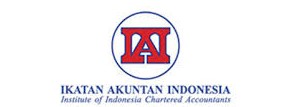Pengaruh Budaya Organisasi dan Ketidakpastian Lingkungan terhadap Penerapan Praktik Akuntansi Manajemen pada Usaha Kecil dan Menengah
Abstract
This paper aims to determine the influence of organizational culture and environmental uncertainty on the implementation of management accounting practices in SMEs in Limapuluh Kota Regency. Objective data was taken from a questionnaire with a sample of 100 companies. The statistical test tool used is SPSS version 24. Findings from data analysis show that an important factor influencing the level of implementation of management accounting practices in SMEs is organizational culture. Organizations that have good commitment and vision in achieving their goals will be more flexible in accepting reforms, including in implementing management accounting practices. Apart from that, the environmental uncertainty felt by companies also encourages companies to use various kinds of management accounting practices in order to maintain and sustain their business. Previous research has studied various contingent factors that influence the implementation of PAM in SMEs, but there is still little previous research that studies the influence of culture in implementing corporate PAM, especially in small and medium enterprises.
References
Abdel-Kader, M., & Luther, R. (2008). The impact of firm characteristics on management accounting practices: A UK-based empirical analysis. British Accounting Review, 40(1), 2–27. https://doi.org/10.1016/j.bar.2007.11.003
Amani, N. K. (2023). TikTok Shop Tutup Layanan di Indonesia, Pasar Terbesar Kedua di Dunia dengan 125 juta Pengguna. Liputan6.Com. https://www.liputan6.com/bisnis/read/5414238/tiktok-shop-tutup-layanan-di-indonesia-pasar-terbesar-kedua-di-dunia-dengan-125-juta-pengguna?page=2
Ax, C., & Greve, J. (2017). Adoption of management accounting innovations: Organizational culture compatibility and perceived outcomes. Management Accounting Research, 34, 59–74. https://doi.org/10.1016/j.mar.2016.07.007
Baird, K., Harrison, G., & Reeve, R. (2007). Success of activity management practices: The influence of organizational and cultural factors. Accounting and Finance, 47(1), 47–67. https://doi.org/10.1111/j.1467-629X.2006.00195.x
Baird, K. M., Harrison, G. L., & Reeve, R. C. (2004). Adoption of activity management practices: A note on the extent of adoption and the influence of organizational and cultural factors. Management Accounting Research, 15(4), 383–399. https://doi.org/10.1016/j.mar.2004.07.002
Baird, K., Su, S., & Tung, A. (2018). Organizational Culture and Environmental Activity Management. Business Strategy and the Environment, 27(3), 403–414. https://doi.org/10.1002/bse.2006
Chenhall, R. H. (2003). Management control systems design within its organizational context : findings from contingency-based research and directions for the future. 28, 127–168.
Febrianti, R., & Fitri, Y. (2019). Pengaruh Karakteristik Informasi Sistem Akuntansi Manajemen, Ketidakpastian Lingkungan, Dan Desentralisasi Terhadap Kinerja Manajerial (Studi Empiris Pada Perusahaan Bumn Di Banda Aceh). Jurnal Ilmiah Mahasiswa Ekonomi Akuntansi, 4(3).
Ghozali, I. (2014). Structural equation modeling : metode altenatif dengan partial least square (PLS). Badan Penerbit Universitas Diponegoro.
Gul, F. A. (2012). The Effects of Management Accounting Systems and Environmental Uncertainty on Small Business Managers ’ Performance. September 2013, 37–41. https://doi.org/10.1080/00014788.1991.9729418
Hadid, W., & Al-Sayed, M. (2021). Management accountants and strategic management accounting: The role of organizational culture and information systems. Management Accounting Research, 50. https://doi.org/10.1016/j.mar.2020.100725
Hamdani, J., & Wirawan, C. (2012). Open Innovation Implementation to Sustain Indonesian SMEs. 4(Icsmed), 223–233. https://doi.org/10.1016/S2212-5671(12)00337-1
Handojono, M., & Cornelis, V. (2021). Pengujian Model Kontijensi Akuntansi Manajemen Stratejik terhadap Kinerja UKM di Maluk. 12, 10–25.
Hariadi, B. (2005). Perkembangan Praktek Akuntansi Manajemen Dan Perubahan Lingkungan Bisnis. 6, 150–172.
Hopper, T., Koga, T., & Goto, J. (2015). Cost accounting in small and medium sized Japanese companies : an exploratory study. March 1997.
Ismail, K., & Isa, C. R. (2011). The Role of Management Accounting Systems In Advanced Manufacturing Environment. 5(9), 2196–2209.
Jaradat, Z., Taha, R., Mat Zin, R., Wan Zakaria, W. Z., & Abdul Aziz, R. (2021). The Use And Implications of Management Accounting Practices in Small and Medium-Sized Enterprises. Asia-Pacific Management Accounting Journal, 16(1), 249–295. https://doi.org/10.24191/apmaj.v16i1-10
Kalkhouran, A. A. N., Rasid, S. Z. A., Sofian, S., & Nedaei, B. H. N. (2015). A Conceptual Framework for Assessing the Use of Strategic Management Accounting in Small and Medium Enterprises. Global Business and Organizational Excellence, 35(1), 45–54. https://doi.org/10.1002/joe.21644
Morissan. (2012). METODE PENELITIAN SURVEI. Kencana.
O’Reilly, C. A., Chatman, J., & Caldwell, D. F. (1991). People and Organizational Culture: a Profile Comparison Approach To Assessing Person-Organization Fit. Academy of Management Journal, 34(3), 487–516. https://doi.org/10.5465/256404
Ogungbade, O. I., & Oyerogba, E. O. (2020). Firm culture and management accounting practices among manufacturing firms in Nigeria. Future Business Journal, 6(1), 1–17. https://doi.org/10.1186/s43093-020-00034-9
Otley, D. T. (1980). The contingency theory of management accounting: Achievement and prognosis. Accounting, Organizations and Society, 5(4), 413–428. https://doi.org/10.1016/0361-3682(80)90040-9
Prihastiwi, D. A., & Sholihin, M. (2017). penggunaan praktik-praktik akuntansi manajemen pada usaha kecil menengah dan faktor-faktor kontinjensinya.
Putri, P. Y. A., Dewi, G. A. R. P., & Dewic, C. I. R. S. (2018). Praktik Akuntansi Manajemen Dan Faktor-Faktor Kontijensinya Pada Umkm. 3(2), 100–118.
Rasyid, R. E. (2015). ACCOUNTING-IN-ACTION. Yogyakarta: Pustaka Sempu.
Rudiantoro, R., & Siregar, S. V. (2012). Kualitas Laporan Keuangan Umkm Serta Prospek Implementasi Sak Etap. 9(1). https://doi.org/10.21002/jaki.2012.01
Schlesinger, D. (2017). Organizational culture. 2017 Joint Rail Conference, JRC 2017, January. https://doi.org/10.1115/JRC2017-2247
Sekaran, U., & Bougie, R. (2016). Research Methods for Business: A Skill-Building Approach (7th ed.). John Wiley & Sons.
Sigilipu, S. (2013). Pengaruh Penerapan Informasi Akuntansi Manajemen Dan Sistem Pengukuran Kinerja Terhadap Kinerja Manajerial. Emba, 1(3), 239–247.
Velasquez, S., & Suomala, P. (2015). Cost consciousness : conceptual development from a management accounting perspective. August 2022. https://doi.org/10.1108/QRAM-07-2013-0029
Zhang, Y. ., Hoque, Z., & Isa, C. . (2015). The Effects Organizational Culture And Structure On The Success Of Activity-Based Costing Implementation. Adv. Manag. Account, 25, 229–257.







.png)
.png)
